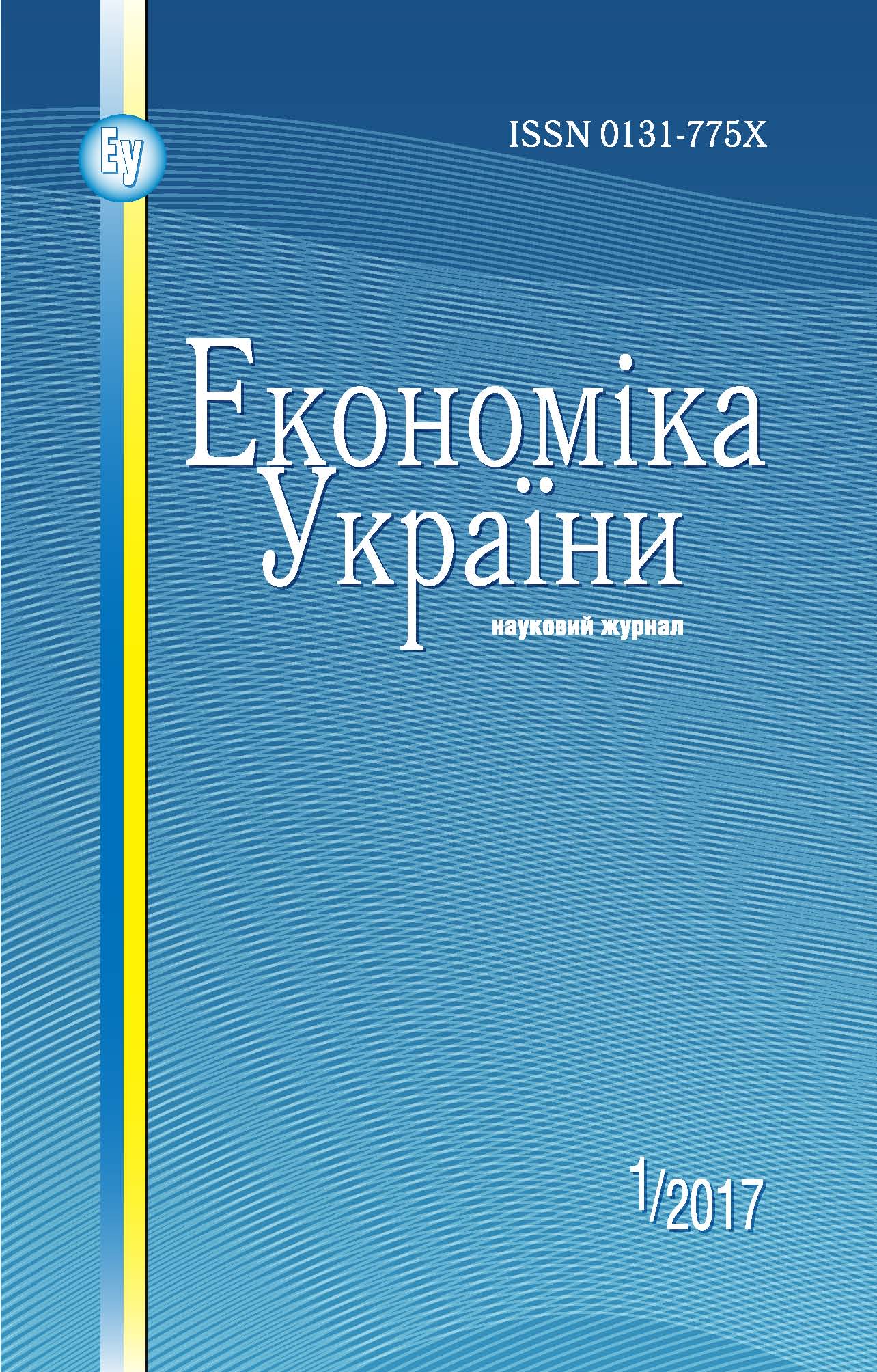ECOLOGICAL CONTROL OVER THE NEOINDUSTRIAL DEVELOPMENT OF NATIONAL ECONOMIES
Keywords:
ecological footprint, index of the global competitiveness, ecological control, neoindustrial developmentAbstract
The support of a sustainable development requires the efficient combination of the strategies of neoindustrialization and ecologization of the economy. A criterion of the success of available approaches to the ecological regulation of a neoindustrial development is the overcoming of the dependence of a high competitiveness of the national economy on the level of a technogenic load or on the production waste intensity on the natural environment. According to the results of international comparisons, the difference between the macroeconomics by economic and ecological indicators on the global market remains significant. Hence, it is of importance to determine the most efficient approaches to the ecological control over the neoindustrialization on the basis of the determination of the best socio-economic and ecological results of economic managing on the macrolevel. To make it, an approach to the two-criterion evaluation of the economico-ecological efficiency of national economies, which is based on the use of integral indices developed in the frames of UNO’s studies such as the global competitiveness and the ecological trace, is proposed. This approach allows one to account for the intensity and the socio-economic expediency of the exhaustion of an available biocapacity and to determine the ability of national economies to the development at the expense of the realization ofa production potential. On this basis, the current level of Ukraine’s economico-ecological efficiency is estimated, and the choice of – the best approaches to the ecological control over a neoindustrial development, which are inherent in highly competitive national economies with a proficit of the biocapacity; at a competitiveness higher than the mean level (> 4.5 marks), the pressure of the ecological trace is held in the limits of the available biocapacity; – countries, which can be considered standard (Finland, Sweden, Great Britain, and Poland) relative to Ukraine by the indicator of the capacity of ecosystems (? 100 GHa) and have attained a higher level of competitiveness (> 4.03 marks), i.e., they are economically more efficient with analogous or less resource possibilities, is substantiated.
References
Sotnyk I.M. Metodychni pidkhody do sothio-ekologo-ekonomichnoi otsinky naslidkiv resursozberigayuchykh transformatsii [Methodical approaches to a socio-ecologo-economic evaluation of consequences of resource-saving transformations], available at: economics-of-nature.net/uploads/arhiv/2009/Sotnyk.pdf [in Ukrainian].
Lukash O.A. Metodychni pidkhody do otsinky ekologo-ekonomichnoi efektyvnosti transkordonnogo spivrobitnytstva [Methodical approaches to the evaluation of the ecologo-economic efficiency of a transborder collaboration]. Mekh. Regul. Ekon. – Mechan. of Regul. of Economy, 2008, Vol. 1, No. 3, pp. 181–185 [in Ukrainian].
Ha-Joon Chang. Kak Ustroena Ekonomika [Economics. The User’s Guide]. Moscow, Mann, Ivanov i Ferber, 2015 [in Russian].
Sutyrin S.F., Filippov P.N. Klastery konkurentosposobnosti Finlyandii [Clusters of competitiveness in Finland]. Vest. Sankt-Peterb. Univ., Ser. 5, Ekon. – Bull. of St. Petersb. Univ., Ser. 5, Econ., 2004, Iss. 1, No. 5, pp. 71–78 [in Russian].
Chernomorova T.V. Velikobritaniya: innovatsionnaya politika i metody ee realizatsii [Great Britain: innovative policy and methods of its realization]. Akt. Probl. Evrop. – Act. Probl. of Europe, 2013, No. 1, pp. 89–116 [in Russian].
Gritsevich I.G., Kokorin A.O., Yulkin M.A. Biznes i Klimat. Mirovoi Opyt Kompanii v Dele Snizheniya Vybrosov Parnikovykh Gazov [Business and Climate. World Experience of Companies in the Matter of a Decrease in the Ejection of Greenhouse Gases]. Moscow, YUNEP, 2005 [in Russian].
Gakashev M.M. Formirovanie innovatsionnykh klasterov: analiz mirovogo opyta [Formation of innovative clusters: analysis of the world experience]. Ekon. i Upravl. v XXI Veke: Tend. Razv. – Econ. and Manag. in the XXI Cent.: Trends of Devel., 2013, No. 9, pp. 59–67 [in Russian].
Kaplina A.V. Institutsional’nyi bazis finansovoi podderzhki klasternykh initsiativ v sisteme regional’noi ekonomiki [Institutional basis of the financial support of cluster initiatives in the system of a regional economy]. Vopr. Regul. Ekon. – Quest. of Regul. of Econ., 2013, Vol. 4, No. 3, pp. 41–46 [in Russian].
Leffler N. Torgovlya kvotami [The trade of quotas]. ABB Revyu – ABB Review, 2005, No. 3, pp. 14–19, available at: esco.co.ua/journal/2011_7/art227.pdf [in Russian].
Downloads
Published
How to Cite
Issue
Section
License
Copyright (c) 2024 Economy of Ukraine

This work is licensed under a Creative Commons Attribution-NonCommercial-NoDerivatives 4.0 International License.



